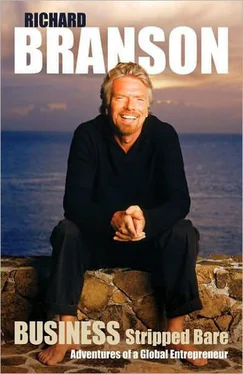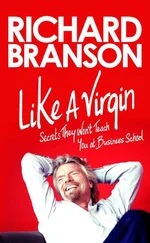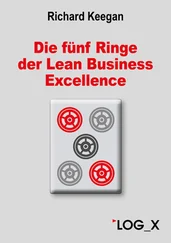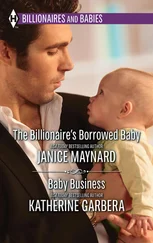Perhaps I took nature too much for granted. I was brought up in stunning English countryside, surrounded by wildlife, birds and trees. A love of the natural environment has been a big part of my life. But it was a visit to my London home by a former US presidential candidate that was the tipping point for my view of how that love should inform the way businesses are run.
The former US vice president, Al Gore, came to visit me in Holland Park. I had never met him before. He asked to see me because he was looking for a business leader who was recognised on a global basis. It seemed that I fitted the bill. He thought I could make a gesture that might bring other business leaders along too. He spent two hours giving me, Will Whitehorn and Jean Oelwang a guided tour of the issues surrounding climate change — a presentation that was later to reach many millions as his Oscar-winning documentary, An Inconvenient Truth .
Prior to Al Gore’s visit, I had read a book called The Skeptical Environmentalist , which was dangerously convenient reading for someone in business! It argued that global warming could even be a positive thing that would stop the world heading for the next ice age. But as a result of meeting Al Gore, I went back to other scientists and other thinkers. I rediscovered the work of Crispin Tickell and James Lovelock. And by the end of my reading, I had reached an inconvenient truth of my own: that I had to do something rather than be passive.
Finally I was handed a book that stopped me in my tracks. It was Tim Flannery’s The Weather Makers . Tim’s thesis was fascinating — and alarming. It put flesh on the bones of the concept of global warming. It gave concrete examples of what was happening and why. I devoured its many beautifully written stories. One in particular sticks in my mind: how the American pioneers cut and burnt the great eastern forests and burnt and grazed the western plains and deserts. Eventually, the vegetation grew back — which is why most of America’s forests are less than sixty years old and regrowing vigorously in the process, absorbing half a billion tonnes of CO 2a year. This has helped cool the planet. Once this vegetation matures, however, it will stop extracting as much CO 2, just when we need its assistance most.
Tim’s book was a gem, and I noticed that he returned again and again to the work of James Lovelock. Tim was greatly influenced by Lovelock’s book Gaia , which talked persuasively about the Earth as a single, living entity.
I had to meet James Lovelock and find out what he thought. One of the privileges of my life is that I get to meet many brilliant people. Jim is an independent thinker, inventor and scientist. In his late eighties, he is sharp and lucid. An honorary professor at Oxford University, he has won many medals and accolades for his original environmental thinking.
As a young mathematician and scientist, James Lovelock regularly visited the Jet Propulsion Laboratories in Pasadena. The laboratory was closely connected with NASA and the American space programme, and undertook work for unmanned space missions. Jim’s inventions have gone into several of the interplanetary probes NASA has launched over the years to explore other planets. Jim also worked on a remote-controlled microbiological laboratory, which was to be dispatched in a rocket to Mars to test whether the planet could sustain bacteria, fungi and other microorganisms. It was then that Jim began to pose the basic question: What is life — and how can we recognise it?
Working with his acclaimed colleague Dian Hitchcock, he began to study the potential for life on Mars. And as they worked, the scientists naturally turned back, for comparison, to Earth — its biosphere and atmosphere. They came to the conclusion that the only feasible explanation of our planet’s atmosphere was that it was being manipulated on a daily basis from the surface. The constant flux of all the different gases in the Earth’s atmosphere was itself proof of living activity.
Jim’s emerging theory was that the world and its atmosphere were one living and breathing system. It was a radical view for its time and rejected by the scientific consensus. However, Carl Sagan, the editor of the astronomy journal Icarus , was intrigued enough to publish Jim’s views.
When, in 1965, the US government abandoned the Martian exploration project that Jim had been working on, he went to work for Shell Research, to consider the effects of air pollution and its global consequences. This was in 1966, and three years before the foundation of Friends of the Earth. Jim warned about the build-up of particles which were then depleting the ozone layer — a thin skin of gas which protects us from the sun’s radiation. One of his many inventions was the electron capture device which was essential for detecting and measuring the atmospheric concentration of chlorofluorocarbons (or CFCs) — the chemicals responsible for breaking down the ozone layer.
It was his friend, the writer William Golding, author of the Lord of the Flies , who gave him the name. Golding suggested ‘Gaia’ after the Greek goddess of the Earth. (It’s from her that we get the root of words like geography and geology.) Jim put forward his ‘Gaia hypothesis’ at a scientific meeting about the origins of life on Earth at Princeton, New Jersey, in 1968. Gaia is Jim’s shorthand for the complex interactions between the Earth’s biosphere, atmosphere, oceans, rocks and soils. Earth, in his view, is effectively a self-regulating mechanism — a machine for life.
When I first spoke to Jim he told me that in the 1970s, he had no clear idea how that machine worked, but as a scientist he knew that the Earth was different from our nearest neighbours in our solar system, and he was fascinated by how the Earth, unlike Mars and Venus, constantly managed to make itself a fit and healthy place to live.
Jim Lovelock has become a great friend, and he has shared with me his work on his long-overdue follow-up book — a soliloquy for his beloved Gaia. Even in his advancing years, his freedom of thought and mind is astounding. I’m not an academic and I struggle with some of the detailed scientific technical stuff, but Jim’s descriptions are poignant, beautiful and understandable.
Jim knows he isn’t going to live for ever, and that his ideas will disappear unless we capture them now. So he has been sending me a host of ideas in the hope that I can turn at least some of them into businesses. He talks about dropping pipes into the ocean, about burying algae at sea, about putting extra sulphur into the atmosphere. He is not a crank, or a lone voice in the wilderness. He is an internationally celebrated and revered figure and his ideas have a lot of currency. What is lacking, however, is the sort of serious, heavily funded research necessary to show which of his ideas are most worth pursuing.
In April 2006, almost in the same post as the letter from the charity Starfish, I found a letter from former US president Bill Clinton, inviting me to the Clinton Global Initiative, to be held in New York that September. I fully respect the work that Bill is doing to tackle social and environmental issues, so a few days later I agreed to participate. Bill also phoned me and asked if there was any gesture that I would be willing to make.
I was sitting in the bath when it occurred to me: why not just divert all the profits made by the Virgin Group from our carbon-creating businesses — such as the airlines and trains — and invest it in developing the cleaner technologies of the future? I’d also look at business research on wind power and solar power and anything that could replace the fossil fuels. When I briefed him beforehand, Bill was excited. He wanted to make it the centrepiece of the meeting in September. I said I would like Al Gore, Bill’s former vice president, to be there as well. I said that without Al visiting me I wouldn’t have come up with the idea in the first place. Bill Clinton’s introduction went like this:
Читать дальше












